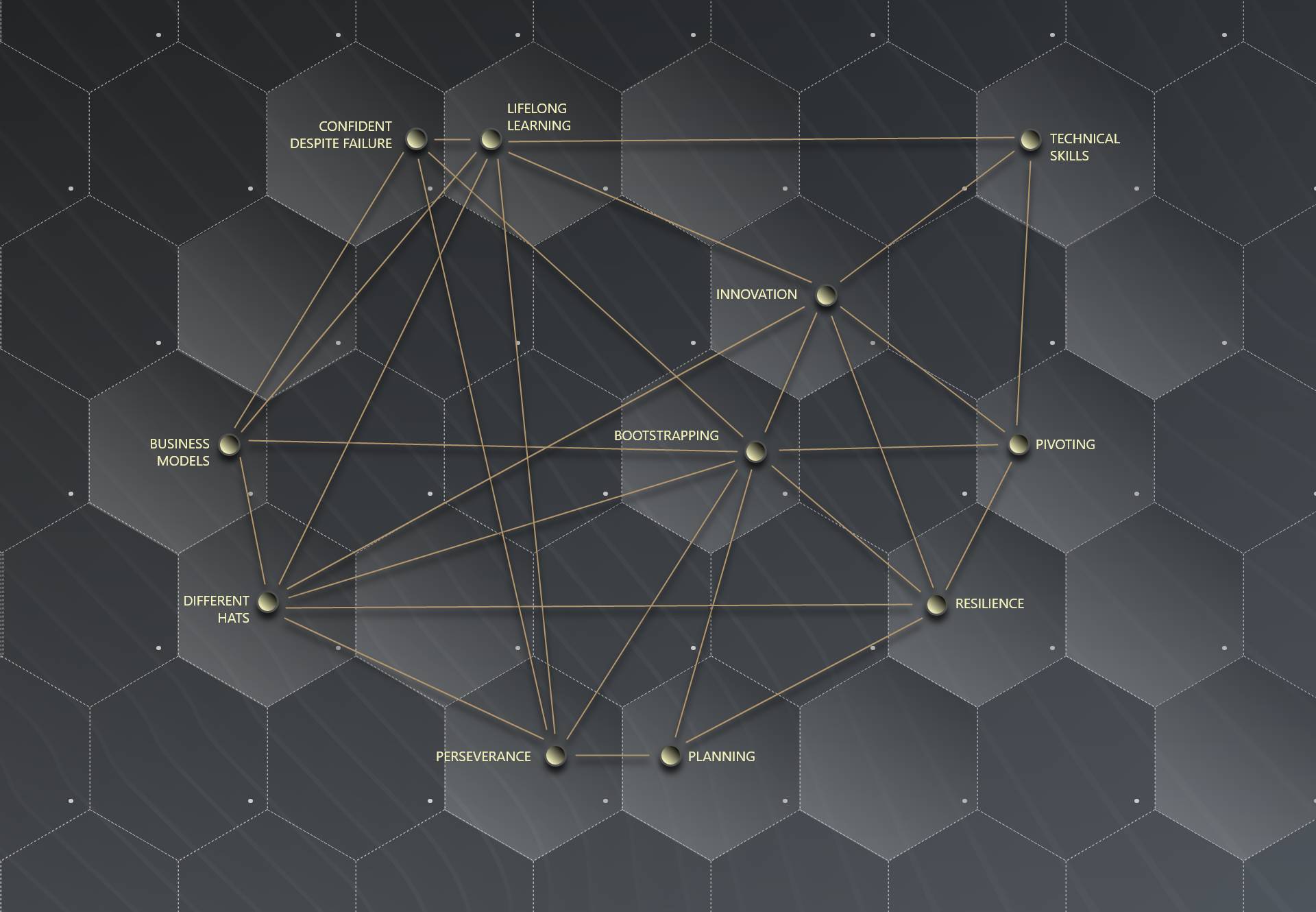

THEY BOTH CONSTANTLY EXPERIMENT AND DECIDE WHERE TO FOCUS BASED ON THE RESULTS.


CRAZY ENOUGH TO SUCCEED
Dealing With The Perception Of Reality
The people who are crazy enough to change the world are the ones who do it, so someone said.
Several factors contribute to the making of a project. Even if all these factors are working perfectly, the chances of success are still less than those of failing.
However, the urge to work on a project to see it come true is something irrepressible. Something that goes beyond the sphere of logic and whose irrationality is at the same time the blessing and the curse of every entrepreneur.
STRUGGLING WITH COGNITIVE BIAS
The Two Sides Of Overconfidence
3 out of 4 activities no longer exist after 5 years. However, people pursue entrepreneurship, which involves stress, hard work and incredible risks.
Influenced by an overwhelming optimism, an inclination that makes us believe that we are less at risk of suffering a negative event, entrepreneurs tend to be overconfident, a mindset not entirely rooted in reality but that can contribute to the achievement of their goals.

IRRATIONAL GOALS REALISTIC RESULTS
Entrepreneurial irrationality is a mentality that contributes to success, motivating people to work hard and persist in the face of initiatives with a low probability of success.
However, the best thing is to turn this irrational spark into rational optimism without falling into the trap of overconfidence in one’s abilities and ability to reach the right conclusions.
ENTREPRENEURIAL MOTIVATIONS
True values and reason that push entrepreneurs to venture into the business.
PRIVATE LIFE MANAGEMENT
High personal costs to be addressed that make entrepreneurship perceived as an impracticable career choice.
RATIONAL/IRRATIONAL BALANCE
Tools and processes that convert an “irrational” choice into rational actions.
INVESTOR INVOLVEMENT
Extra-rational components that push investors to bet on a company.


The Balance Between Working Hard And Challenging Risks
An entrepreneur must acquire data. Data on everything: product, market, audience, etc. Data to make decisions and answer questions. However, at startup, entrepreneurs have almost no data. But they try anyway.
The irrationality of an entrepreneur lies in not having immediately all the data he needs, but in the determination to acquire them over time, to put together everything that is useful and in the tenacity to look for the answers that are missing.
By scrupulously checking the results of his efforts to make sure that too optimistic expectations compensate for the reality. This mentality leads irrational entrepreneurs to take action.
For them, mentality is important, but they also recognize that reality is part of the formula. So they work to change reality, to adapt it to their purpose, not just to desire it.
Given that entrepreneurship means dealing with repeated failures, without a good amount of irrationality, you would have no reason to try. And without trying there is no result.
Irrational entrepreneurs overlook problems and think that reality has no relation to the future. They think they can do something to overcome all the barriers that stand between them and their goal.
ENTREPRENEURS THINK AMBIDEXTROUSLY.
WHEN SOLVING A COMPLEX PROBLEM THEY ARE ABLE TO SHIFT BETWEEN THE TWO SIDES OF THE BRAIN.
LIKE MANAGERS WHO USE THE LEFT SIDE TAPPING INTO THEIR LOGIC. AND ARTISTS WHO USE THE RIGHT SIDE ACCESSING THEIR CREATIVITY.

WHAT CAN YOU DO WITH SONDER’S TRAINING PROGRAMS?
PRACTICALLY AYTHING.
Ideate New Projects. Develop New Products. Communicate Your Story. Manage Your Organization. Lead Your Team. Transfer Knowledge.
With a technical and practical knowledge and a deep understanding of how people think and communicate, this learning program will help you stand out and unlock your full potential at work and in life.


LOGIC IRRATIONALITY
Healthy Self-Confidence Vs. Irrational Optimism
Given the divorce rates, no one should ever get married. However, you cannot think of divorce on the wedding night. This is a metaphor suitable for the entrepreneur’s irrationality.
The usual life of each entrepreneur alternates between the great self-confidence and ability to achieve success and the obsessive and constant accurate assessment of potential risks.
An entrepreneur who starts a business could work for 16 hours a day for years and face a stress that goes beyond anything most people have ever imagined, struggling daily with all sorts of cognitive bias.
EXPLORE ALL PROGRAMS

Sonder Industries offers a variety of training opportunities to professionals, entrepreneurs, companies and organizations around the world. Our programs are developed with the aim of widening access to quality knowledge and promoting understanding of global issues.
GET MORE DETAILS ON OUR TRAINING PROGRAMS AND THE CUSTOMIZATION TAILORED ON YOUR SPECIFIC NEEDS

